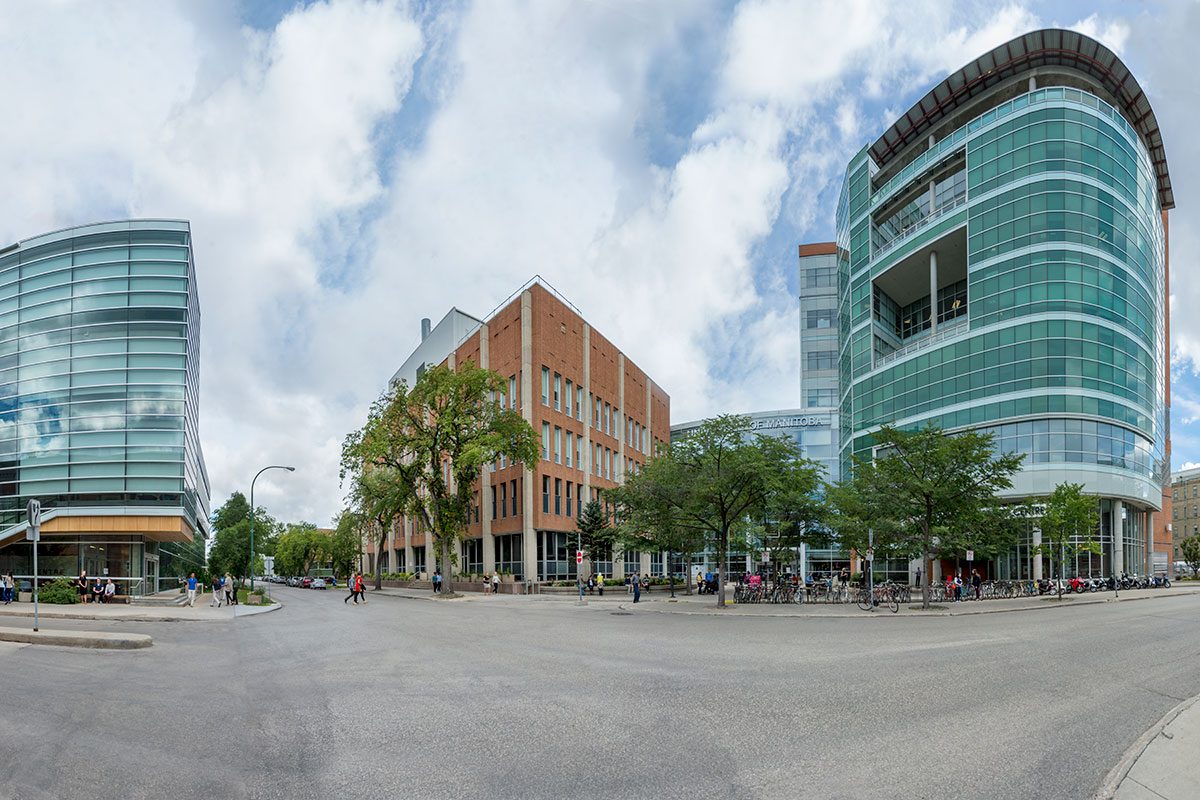
Bannatyne campus.
Indigenous Institute to be launched with celebration, dialogue
The official launch of the Rady Faculty of Health Sciences’ Indigenous Institute of Health and Healing (Ongomiizwin) on Friday, June 2 will be a day-long gathering at which everyone is welcome, from the university and beyond.
“We’re inviting everyone to the Bannatyne campus to mark this historic day with ceremony, celebration and dialogue,” said Dr. Marcia Anderson, executive director of Indigenous academic affairs at the new institute.
“Ongomiizwin is taking its permanent place in the Rady Faculty of Health Sciences. This will be a landmark occasion, affirming the University of Manitoba’s commitment to building respectful relationships and creating pathways to Indigenous health, healing and achievement.”
The morning program in the Brodie Centre Atrium is open to all. Anyone who wants to participate in the luncheon and afternoon dialogue sessions can view the schedule and pre-register here.
Ongomiizwin (“Clearing a path for generations to come”) will be the largest Indigenous education and health unit in Canada. It will advance excellence and provide leadership in research, education and health services in collaboration with First Nations, Metis and Inuit communities. Its work will be guided by knowledge keepers and elders.
The institute brings together at the Faculty level three units that were formerly part of the Max Rady College of Medicine: the Manitoba First Nations Centre for Aboriginal Health Research, the Centre for Aboriginal Health Education and the J.A. Hildes Northern Medical Unit.
Ongomiizwin will lead the implementation of the Rady Faculty’s Reconciliation Action Plan, developed in response to the health-related calls to action made by the Truth and Reconciliation Commission of Canada.
The Action Plan addresses themes such as honouring traditional knowledge; providing safe learning environments; improving support and retention of Indigenous students; educating all students and faculty in cultural safety and anti-racism; and removing barriers to health professional education.
“We’ll have a leadership role in Indigenous health across all the health colleges (dentistry, medicine, nursing, pharmacy and rehabilitation sciences),” Anderson said. It’s hoped that the institute will eventually have its own dedicated space. For now, it will occupy four spaces on the Bannatyne campus.
On June 2, the morning program for the launch includes the blessing of Ongomiizwin; remarks by university leaders; a keynote address by Dr. Carrie Bourassa, scientific director of the Institute of Aboriginal Peoples’ Health (part of the Canadian Institutes of Health Research); a panel discussion; and a celebratory luncheon featuring Indigenous entertainment.
The afternoon includes breakout dialogue sessions on topics related to the Reconciliation Action Plan, such as admissions policies at the health colleges. “We didn’t want to have a day where we did all the talking,” Anderson said. “We wanted members of diverse First Nations, Metis and Inuit communities to have the space to speak.”
It’s significant, Anderson said, that the institute’s name refers not just to health, but to healing.
“It’s not just about health care for our people. Because of the impact of colonization, the residential schools, the intergenerational trauma, there’s a lot of healing that needs to happen, including at the spiritual level. We take that as part of our core reason for being.”






